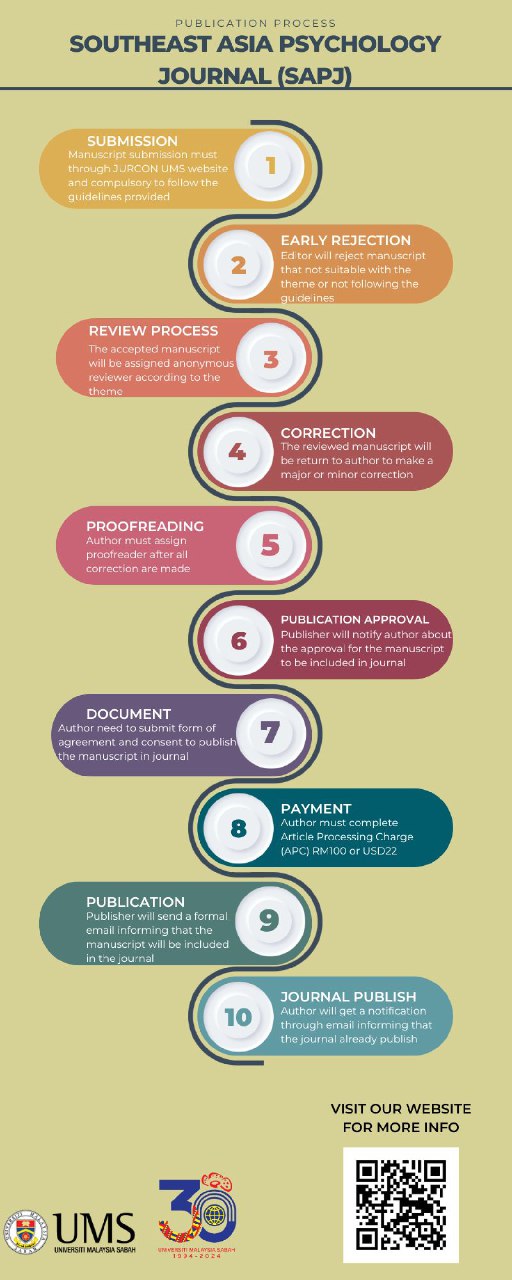THE EFFECTIVENESS OF PARENTING CLASSES IN INCREASING PARENTING SELF EFFICACY IN EARLY CHILDHOOD PARENTS DURING THE COVID-19 PANDEMIC
DOI:
https://doi.org/10.51200/sapj.v9i2.5088Keywords:
Parenting Class, Parenting Self Efficacy, Parents, Early ChildhoodAbstract
Online learning assistance for early childhood during the Covid-19 pandemic is a challenge in itself. Thus, this phenomenon is clearly seen in several PAUD (Early Childhood Education) schools in Tangerang. Based on Focus Group Discussions and questionnaires on parents of students, it was found that parents' confidence in accompanying children and children's learning achievement at home decreased due to online learning which was considered difficult. According to Coleman and Karraker (2000), parenting self-efficacy is a parent's assessment of their competence in the role of parents or parents' perceptions of their ability to positively influence the behavior and development of their children. One of the efforts to help parents is through parenting class activities designed to enhance or improve the role of parents in childcare. Parenting class is a specific intervention designed to improve the overall quality of parents which aims to help mothers and fathers relate to their children (Scott & Gardner, 2015). This study aims to determine the effectiveness of parenting classes in increasing parenting self-efficacy in early childhood parents during the Covid-19 pandemic. Research subjects (N = 294) in this study were parents / learning companions of early childhood education students, using non-probability sampling techniques with purposive sampling method. Measurements conducted using Paired Sample T-Test. Based on the comparison of pre-test and post-test measurements, the results obtained are the value of t = -71,365, p = 0.000 <0.05, thus there is a significant difference in parenting self-efficacy both in the pre-test and post-test in parents after parenting class.
References
Alwisol. (2009). Psikologi Kepribadian edisi revisi. Malang: UMM Press.
Astutiningrum, D., Hapsari, E, D., & Purwanta. (2016). Peningkatan Parenting Self Efficacy Pada Ibu Pasca Seksio Sesaria Melalui Konseling. Jurnal Ners, 11 (1): 134-141.
Bandura, Albert. 1997. Self-efficacy - The Exercise of Control. New York: W.H. Freeman and Company.
Barker, D. H., Quittner, A. L., Fink, N. E., Eisenberg, L. S., Tobey, E. A., & Niparko, J. K. (2009). Predicting behavior problems in deaf and hearing children: The influences of language, attention, and parentchild communication. Development and Psychopathology, 21(2), 373-392. https://dx.doi.org/10.1017%2FS0954579409000212
Brooks, J. (2011). The Process of Parenting. New York: Mc. Graw Hill.
Coleman, P. K., & Karraker, K. H. (1997). Self-Efficacy and Parenting Quality: Findings and Future Applications. Developmental Review, 47-85.
Coleman, P. K., & Karraker, H. (2000). Parenting Self-efficacy Among Mothers of School-Age Children: Conceptualizaition, Measurement, and Correlates. Family Relations, 49, 13-24.
Delft, S. V. (2012). Relationships between Parental Self Efficacy, Parenting Training Instruction Practices, and Models of Parent Practicions. Thesis The University of British Columbia.
Desjardin, J. L. (2001). Assessing Parental Peceptions of Self-Efficacy and Involvement in Family of Young Children with Hearing Loss. The Volta Review, 103(4), 391-409.
Elyana, L. (2020). Manajemen Parenting Class Melalui Media E- Learning. Sentra Cendekia, 1 (1), 29-35. Diakses dari http://e-journal.ivet.ac.id/index.php/Jsc. DOI:https://doi.org/10.31331/Jsc.v1i1.1191
Jones, T. L., & Prinz, R. J. (2005). Potential roles of parental self-efficacy in parent and child adjusment: A review. Clinical Psychology Review, 341-363.
Scott, S. & Gardner, F. (2015). Parenting Program, on Rutter’s Child and Adolescent Psychiatry. London: John Wiley & Sons.
Shaughnessy, J. J., Zechmeister, E. B., & Zechmeister, J. S. (2015). Metode Penelitian Dalam Psikologi. Jakarta: Salemba Humanika.
Sugiono. (2012). Metode Penelitian Pendidikan Pendekataan Kuantitatif, Kualitatif Dan R&D. Bandung: Alfabeta.
Wahyu, d., Wahyuni, S., & Widiant, E. (2018). Parenting Day sebagai Aktivitas Peningkatan Hubungan Orangtua dan Anak. Jurnal Pendidikan Nonformal, 13 (1), 1-9.








